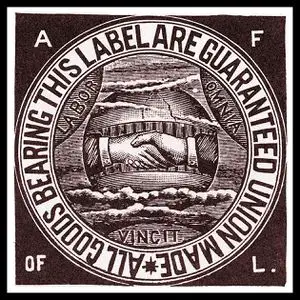What is the history of socialism in the United States
Socialism, in the United States at least, has often been seen as a negative term or been associated with other countries, usually dictatorships or Marxist states. Nevertheless, socialism has a long political history in the United States and has been, at times, influential in American politics.
Contents
Early Socialism in the United States
The earliest forms of socialism are evident in the early 19th century with the establishment of what was called 'Utopian' Socialism, a form of socialism that focused on establishing communities that had a goal to develop communities that functioned with minimal social ills through social action. These communities could serve as examples to the large country and thus influence national policies. Many such communities were established in the United State, mostly by European settlers, who had developed their ideas in Europe but attempted to practice their community beliefs in the United States because it was seen as a place that afforded the space and political opportunity to create new communities. Brook Farm in Massachusetts and town of Bethel, Missouri are two such examples. Some of these communities were inspired by Christian beliefs and socialism, while others were inspired by German Idealism philosophy, such as that supported by Immanuel Kant, and the Romanticism movement in Europe which viewed as individuals and institutions having been corrupted by society. This developed into the Transcendentalism movement in the United States during the 1820s-1830s. Brook Farm was one of their well-known communities, established in 1841 by George Ripley, that once included Nathaniel Hawthorne and Ralph Emerson. The Transcendentalists were influenced by Charles Fourier, a prominent French Socialist thinker of the Utopian movement. At Brook Farm, the community attempted to pool their labor and resources so that intellectual and scientific pursuits could be followed by the community. By 1849, the community was financially insolvent, as the farming used for communal money proved unprofitable, and the farm itself was sold (Figure 1).[1]
Edward Bellamy, a relatively unknown author, wrote what would become perhaps the second highest selling book in the United States in the 19th century, surpassed only by Uncle Tom's Cabin. The book (Looking Backward: 2000–1887) describes a socialist United State in the year 2000. The book was still part of the Utopian Socialism ideals but now began to tackle what would become core aspects of socialism as it discussed labor and production, including equal distribution of goods across the United States. The hero of the novel wakes up in 2000 to see the United States that is in a socialist Utopian state where everyone retires at 45 and production is distributed equally [2].
After 1848, many socialists from Germany had migrated to the United States due to political fallout from the 1848 revolutions that swept Europe. This led to the first Marxist socialists to migrate to the United States and also followers of Ferdinand Lassalle, a prominent German philosopher who believed the state was critical in establishing justice in a socialist society, in contrast to Marxists who eventually saw the state may not be required. In Germany, this influenced what would become the Social Democratic Party (SPD), which is still one of the main political parties in that country. In the United States, several socialist parties formed, particularly in the 1870s as economic depression and stagnation occurred. This included the rise of the Socialist Labor Party of America (SLP) and others, with the SLP still in existence. Many of those involved in the SLP also formed the American Federation of Labor (AFL), which exists today as part of AFL-CIO, a prominent labor organization and union. Other movements began to emerge, including Eugene Debs and others who founded the Socialist Party of America in 1901. The party would nominate Debbs for president between the 1904-1920 elections, where they were able to get about 3% of the vote and often finished third. Debs would go one to influence some left-wing politicians in the United States even though his own movement failed to materialize. His speaking style and compassion have been cited as being influential on left-leaning American politician in the 20th century and later social democratic movements (see below).[3]
The US and Socialism in Europe
In the late 1800s and early 1900s, it was clear that socialism in the United States began to develop differently. Mostly this was because socialism was less influential politically in the United States, even though indirectly it did influence the major parties through campaigns and strikes for better working conditions. This included the development of unions and other labor activities (Figure 2). Nevertheless, politically, Europe's experience was different due to a much stronger influence of socialism on political action, stemming from revolutions (e.g,. 1848) that had occurred on the continent that led to new political parties that had far greater power. Political parties did well under a socialism banner, in particular the SPD in Germany where it could obtain between 4-5 million votes and run about 90 newspapers by the late 1800s. This is despite the fact that the party was banned at one point, although individual candidates could run. The Marxists proved to be the most influential socialists, but others emerged that argued for more gradual transitions to socialism rather than revolution. One prominent thinker was Eduard Bernstein, who began to influence the SPD through gradual policies that focused on specific legislative actions, even though the party had a more Marxist platform. This began to form what ultimately would become the social democratic movements that focused on welfare and other reforms rather than complete social revolution.[4]
In France, the UK, and other smaller European countries, most Marxist movements began to evolve into reformist parties that influenced and led to the development of left-leaning parties, such as Labour in the United Kingdom. These parties, particularly as they achieved power, focused on legislative reforms that included worker benefits and rights. In Germany, a system of social security arose in 1889. This was enacted by Bismarck, who opposed the socialist SDP party, but Bismarck understood the influence the party had on Germany and promoted the policy as a way to stem their political rise. In effect, even when socialist policies were not directly enacted, indirectly they began to influence legislative actions throughout Europe. Norway in 1912, which is still present in the country, developed the first universal healthcare system. Other states began to create welfare programs either directly through social democratic actions or indirectly as ways to counter those parties by more right-wing parties. In effect, European political discourse had shifted, particularly in domestic policy, as the socialist-leaning parties began to agitate for change.[5]
In the United States, socialists' popularity never materialized. During World War I, socialists became unpopular for opposing the war and draft. The Socialist Party of America considered the war 'a crime' and Woodrow Wilson signed the Espionage Act that considered it a crime to cause insubordination by obstructing the draft, as anti-draft demonstrations grew with the entry of the United States in the war. The Marxists, more prominent in Europe, were seen as mostly German thinkers, which caused greater animosity in the United States and by the end of the war, there was a greater fear of the rising influence of Marxism in Russia during the Russian Revolution, leading to the initial Red Scare. During the war, industrial strikes began to affect production, where President Wilson ordered a raid on the Industrial Workers of the World (IWW) group that had organized some of the strikes. The Communist Party of America formed in the late 1910s and began to attract many socialists away from socialist parties and groups, diminishing socialist movements to an extent. The 1920s-1930s did see a period of greater influence of the socialists and communists in the United States, similar to Europe, where legislative reform, in particular during the Great Depression, was, in part, intended to diminish the influence of more left-leaning groups on US workers who became increasingly discontent. Socialists, in a way, had an indirect influence on legislation, where Franklin D. Roosevelt was even accused of being a socialist or socialist sympathizer for his New Deal reforms.[6]
Recent Socialism or Democratic Socialism
The 1950s was the period of another 'Red Scare,; this time driving left-leaning groups to less popularity, including socialists, particularly during the period of Mccarthyism and the House Un-American Activities Committee. It was only in the 1960s, with the New Left movement, that socialists in the United States reemerged. The Progressive Labor Party was one political party that emerged in 1962, where it helped lead and organize on more local scales, including organizing demonstrations against the Vietnam War. Michael Harrington became a well known author of socialist ideals, where he wrote the book The Other America. He became a founding member of the Democratic Socialist of America (DSA). The DSA strategy included working through the main Democratic party to get left-leaning candidates influenced or elected by democratic socialist ideals, similar to Europe. In effect, this was a transformation that began to mimic what happened to Europe early in the 20th century, as different socialist factions emerged that also opposed more pure Marxist ideals. After 2017, the DSA has now become the largest socialist party in the United States, with over 32,000 members and includes US House of Representatives members Rashida Tlaib and Alexandria Ocasio-Cortez as members. Overall, 20 DSA membres hold elected office today.
Summary
Socialism has a long history in the United States, where it has manifested itself in different forms. This has included how socialism can be achieved, whether through small-scale legislative policies, such as that espoused by most social democrats, or larger societal shifts that are supported by Marxist socialists. The Utopian socialists were the first movement in the United States that emerged, where they focused on creating separate communities that led a life where labor and resources would be shared in an attempt to create a more utopian society, at least in small communities.
References
- ↑ For early history of American socialism and Utopian socialism, see: Taylor, K. (2016). Political ideas of the utopian socialists. Routledge.
- ↑ For more on the significance of Looking Backward, see: Trodd, Z. (Ed.). (2006). American protest literature. Cambridge, Mass.: Belknap Press of Harvard Univ. Press.
- ↑ For more on socialist movemented in the mid-19th century, including in the United States, see: Linden, M. van der, & Rojahn, J. (Eds.). (1990). The Formation of labour movements, 1870-1914: an international perspective. Leiden ; New York: E.J. Brill.
- ↑ For more on the socialist movements of Europe in the 19th century and SPD, see: Berger, S. (Ed.). (2009). A companion to nineteenth-century Europe: 1789 - 1914 (Paperback ed). Malden, MA: Wiley-Blackwell.
- ↑ For more on legislative reforms in Europe that derived from socialists actions, see: Alesina, A., & Glaeser, E. L. (2004). Fighting poverty in the US and Europe: a world of difference. Oxford: Oxford University Press.
- ↑ For more on the history of US socialists in the early 20th century, see: Howe, I. (1986). Socialism and America. Orlando, Fla: Harcourt.

